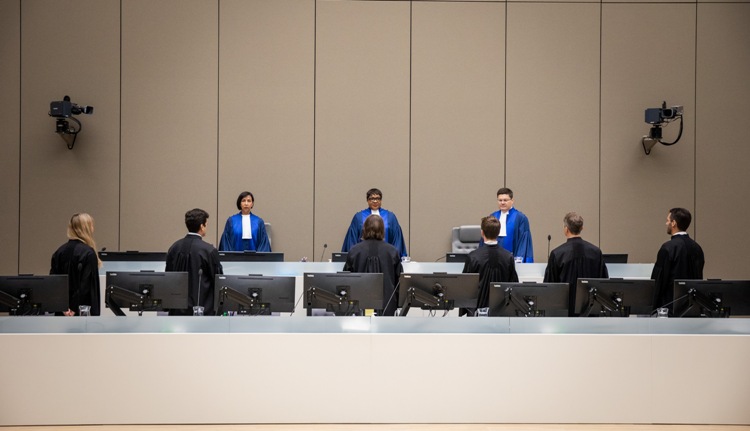Central African Republic: Said trial opens at International Criminal Court
The trial of a paramilitary commander accused of carrying out or ordering crimes against humanity and war crimes in the Central African Republic (CAR) began on Monday in The Hague.

The trial of a paramilitary commander accused of carrying out or ordering crimes against humanity and war crimes in the Central African Republic (CAR) began on Monday in The Hague.
Mahamat Said Abdel Kani - a top-ranking leader of the mostly-Muslim Séléka militia - pleaded not guilty to all charges, which relate to atrocities carried out in 2013, in the Central African Republic capital, Bangui.
Much of the violence stemmed for clashes between Séléka and the mostly-Christian Anti-balaka faction.
Occupation
Before the crimes were committed, from late 2012 to early 2013, Séléka militia advanced towards the capital, attacking police stations, occupying military bases, capturing towns and regional capitals, and targeting suspected supporters of President François Bozizé.
They seized Bangui in March 2013 and with forces numbering up to 20,000, looted homes while searching for sympathisers of Mr. Bozize, shot those fleeing in the back or killed others in their homes.
“Women and girls were raped and gang-raped in front of their children or parents; some died as a result of their injuries,” the arrest warrant for Mr. Said stated.
Civilians targetted
“Part of the civilian population was targeted through multiple acts of murder, imprisonment, torture, rape, persecution on political, ethnic and religious grounds, and pillaging of houses belonging to non-Muslims and others perceived to be complicit with or supportive of the Bozizé government,” the warrant continued.
Mr. Kani’s charge sheet includes imprisonment, torture, persecution, enforced disappearance and other inhumane acts, committed in Bangui between approximately April and November 2013.
He saw “oversaw the day-to-day operations” of an infamous detention centre where men were taken after being arrested by Séléka members.
 © ICC-CPIThe Judges of Trial Chamber VI at the opening of the Mahamat Said Abdel Kani trial case at the International Criminal Court in The Hague (Netherlands).
© ICC-CPIThe Judges of Trial Chamber VI at the opening of the Mahamat Said Abdel Kani trial case at the International Criminal Court in The Hague (Netherlands).
Appalling conditions
“Prisoners were held in small, dark, crowded cells with only a bucket as a toilet and little or no food, causing detainees to drink their own urine,” the ICC statement read.
Detainees were whipped with strips of rubber, beaten with rifle butts and told: “We’re going to kill you one by one”.
It was common for prisoners to spend several hours in a specific stress position so painful that some “would ask to be killed”. The position, known as “arbatacha”, involved tying a detainee’s hands and legs are tied behind their back, with their legs touching their elbows.
Extracting confessions
Mr. Said allegedly referred to the technique as “the most effective to obtain confessions”, the ICC warrant explained, while also noting that he was responsible for deciding which prisoners should be transferred to an underground cell located under his office.
At another detention centre known as CEDAD, where conditions were described as “inhumane”, the court maintained that Mr. Said was the “operations commander” and “kept a list of persons to be arrested” or ordered their arrest.
The trial continues.
Visit UN News for more.
ALSO READ
Unbreakable Bonds and Auburn Glory: Redhead Days Festival in the Netherlands
Nationwide IT Crisis Shakes Netherlands: Flights Grounded, Emergency Services Disrupted
U.S. Approves $224 Million Patriot Missile Sale to Netherlands
Leaping Over Canals: The Thrill of 'Fierljeppen' in The Netherlands
Dubai Police and Utrecht Unveil First Smart Police Station in Netherlands










